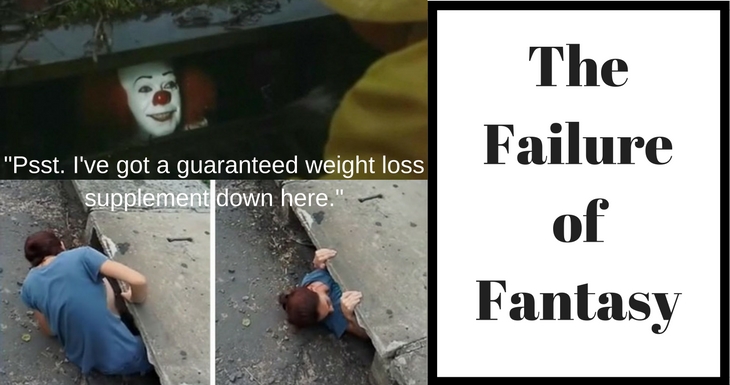
I stared into the bowl of chocolate chip cookie dough. Each creamy wave lapped the edge of the bowl as I stirred. The brown sugar and butter were smooth and the Mexican vanilla added that rich smell that makes the dough truly delightful to eat. I considered the taste—how the dough melts on the tongue, how many times I’ve consumed it over the years—so much so that at one time I had to make a double batch just so there would be a few cookies left at the end of the project. I set the bowl down and considered once again, what if I chucked this whole healthy lifestyle stuff and just started eating again?
 We live in a culture where we are constantly encouraged to indulge. Indulge our appetites, aesthetic inclinations and especially our emotions. We can most certainly have what we want–when we want it. And why not? We have no boundaries. We are told we must explore our deepest desires. We must get in touch with our inner selves in order to determine who we are and where we want to go in life. But is looking inside of ourselves the best way? Is indulging every single appetite every single time actually good for us? I have learned from personal experience that indulgence has a price. As I stared down into the cookie dough last weekend I asked myself the question many people neglect when faced with temptation, “Should I?”
We live in a culture where we are constantly encouraged to indulge. Indulge our appetites, aesthetic inclinations and especially our emotions. We can most certainly have what we want–when we want it. And why not? We have no boundaries. We are told we must explore our deepest desires. We must get in touch with our inner selves in order to determine who we are and where we want to go in life. But is looking inside of ourselves the best way? Is indulging every single appetite every single time actually good for us? I have learned from personal experience that indulgence has a price. As I stared down into the cookie dough last weekend I asked myself the question many people neglect when faced with temptation, “Should I?”
“Should I” and “Could I” are two different questions. “Should I?” ponders the consequences. “Could I?” merely questions physical capability. I spent many years proving that I could indulge. The problem is my culture gives me conflicting messages. I wasn’t beautiful unless I was thin, but I wasn’t happy unless I was satisfied with the tastiest food. The steady stream of propaganda specifically crafted for creatures like me was irresistible. C.S. Lewis said, “A man with an obsession is a man who has very little sales-resistance.” No one understands this better than the entertainment industry and they are always reinforcing that we are the captains of our souls and should therefore pursue our deepest longings no matter what the cost.
Cover Girl?
A friend lamented to me recently that an eye infection would prevent her from wearing makeup for at least a week. I thought about the time I got poison ivy on my face and shuddered. “A whole week without makeup? Oh, the humanity!” I have many friends who will not go outside their homes without their “faces” on. In fact, cosmetics have become such a standard of beauty that women and girls are routinely shamed by friends and classmates for not applying them properly. Maybelline and Loreal have thriving businesses targeted at our vanity obsession and most women admit they feel naked without it. Now I’m not shucking makeup—I wear it nearly every day. What I’m poking at is more around our utter dependence on beauty.
 Why do we care so much about our appearance? I’m not talking about basic grooming. I like my shower, thank-you-very-much. I’m talking about the extremes we pursue to be beautiful. I was eating lunch with a friend at a restaurant a few years ago when two middle-aged women walked in. Their faces looked like Claymation gone horribly awry. They wore chic tops with cropped pants. High-end purses dangled from their wrists. Their sunglasses were obligatorily perched in professionally tousled hair. But their faces! Why had they done that to their faces?
Why do we care so much about our appearance? I’m not talking about basic grooming. I like my shower, thank-you-very-much. I’m talking about the extremes we pursue to be beautiful. I was eating lunch with a friend at a restaurant a few years ago when two middle-aged women walked in. Their faces looked like Claymation gone horribly awry. They wore chic tops with cropped pants. High-end purses dangled from their wrists. Their sunglasses were obligatorily perched in professionally tousled hair. But their faces! Why had they done that to their faces?
“Do not love the world or the things in the world. If anyone loves the world, the love of the Father is not in him. For all that is in the world—the desires of the flesh and the desires of the eyes and pride of life—is not from the Father but is from the world. And the world is passing away along with its desires, but whoever does the will of God abides forever.” 1 John 2:15-17
Emotions unleashed
 Harvey Weinstein is the most recent example of abuse of power gone awry. We’ve seen the likes of Bill Cosby, Bill Clinton, Bill O’Reilly and several others not named Bill stretched across the headlines recently as prime examples of perversion. We rightly call “fowl” when humans harm other humans for their own gratification. The backlash against Mr. Weinstein has been nothing short of spectacular with women all over the world coming forward to acknowledge the prevalence and problem of sexual harassment. One man online recently opined that if so many women have been harassed or assaulted, what does that say about the men in our culture?
Harvey Weinstein is the most recent example of abuse of power gone awry. We’ve seen the likes of Bill Cosby, Bill Clinton, Bill O’Reilly and several others not named Bill stretched across the headlines recently as prime examples of perversion. We rightly call “fowl” when humans harm other humans for their own gratification. The backlash against Mr. Weinstein has been nothing short of spectacular with women all over the world coming forward to acknowledge the prevalence and problem of sexual harassment. One man online recently opined that if so many women have been harassed or assaulted, what does that say about the men in our culture?
We rightly call it wrong when people give vent to culturally unacceptable vices but what about when those vices are emotional in nature. We assume our feelings don’t generally harm anyone but what happens when they do? We know that drinking too much alcohol or doing drugs is bad for our bodies, but what about anger? What about fear? What about (romantic) love?
There is a dangerous idea floating around our media that “falling in love” is the single highest state of emotional contentment. We are encouraged to find that state of emotional bliss and ardently pursue it. We see this evidenced in our heroines; Bridget Jones, Bella from Twilight, and Allie in The Notebook. And we begin to believe that love is a feeling, and once the feeling fades, we are free to pursue other opportunities regardless of the impact on our families—and I would even suggest—our communities.
 Men understand the great need of women to be loved in this “exhilarating” way and use it to their advantage. Robert Palmer immortalized this idea in the song, “Addicted to Love”. One track mind indeed. I was recently talking to a co-worker about her experience with men and I asked if she had ever met a man who cared for and protected her. Her response was telling. She said no. Not her father, uncle, brother, ex-husband, or son. If she was telling the truth, and I believe she was, that is a startling statement about the male mind in today’s society. When did men stop putting the needs of women before their own?
Men understand the great need of women to be loved in this “exhilarating” way and use it to their advantage. Robert Palmer immortalized this idea in the song, “Addicted to Love”. One track mind indeed. I was recently talking to a co-worker about her experience with men and I asked if she had ever met a man who cared for and protected her. Her response was telling. She said no. Not her father, uncle, brother, ex-husband, or son. If she was telling the truth, and I believe she was, that is a startling statement about the male mind in today’s society. When did men stop putting the needs of women before their own?
Women are obsessed with being “in love”. Men are obsessed with sex. Both obsessions point inward. This inward focus is disappointing at best and horrific at its worst. People have been seeking to understand and know and oblige themselves so intently and for so long that they have lost touch with what it means to care for other human beings. Real love sacrifices. It costs something. And I would like to suggest that it exists outside us.
Why?
Our vices say a great deal about us. They remind us we are all consumers. We consume food, energy, air, knowledge, and even other people. We are perpetually “hungry” for something. Some hungers are normal and necessary, but others cause harm. I would like to suggest that when we pursue our desires and seek to satisfy our endless hungers by looking inside ourselves we are actually involved in a form of self-worship. We consume what we worship, and if we have no frame of reference for goodness outside personal preference, we become monsters.
 In an old episode of the original Star Trek, Captain Kirk and his friends are captured by a being who claims to be the Greek god, Apollo. He transports them to his planet and entreats them to worship him. When they refuse, he focusses his attention on a female crew member, Carolyn, probably because she is female and ostensibly weak. He uses every charm in his toolbox to seduce her and he eventually succeeds. She falls for him. In fact, the only reason the crew escapes is because of her loyalty to her captain and the rest of the crew. She chose duty and honor over emotion.
In an old episode of the original Star Trek, Captain Kirk and his friends are captured by a being who claims to be the Greek god, Apollo. He transports them to his planet and entreats them to worship him. When they refuse, he focusses his attention on a female crew member, Carolyn, probably because she is female and ostensibly weak. He uses every charm in his toolbox to seduce her and he eventually succeeds. She falls for him. In fact, the only reason the crew escapes is because of her loyalty to her captain and the rest of the crew. She chose duty and honor over emotion.
Why do we call heroes courageous? Because they save other people at a cost to themselves. Why do we call villains evil? Because they are self-focused. They want power at the expense of others. Heroes save lives. Villains take them. Villains are vain and look in the mirror a lot. Heroes are selfless and point to others as better than themselves.
We don’t often look at ourselves through this lens. Life is busy. We have jobs to do, children to transport, television to watch. Of course I like to think of myself as a hero until my child throws a fit in the grocery store and I lose my temper, grab his arm and yank him around while whispering gruffly, “Shut up you little brat!” Why? Because I don’t want people staring at us. Why? Because I’m embarrassed. Why? Because I want everyone to think I’m a perfect mom with a perfect child. Why? Because I’m proud.
Excising the Root
When I lived in Ferguson I had a tenacious weed in my back yard. It was a vine and the stem was stronger than twine. Every time I cut the vine, it sprouted again. One day I got really ticked off and decided to dig it out. What I found shocked me. There was a tuber, as big as a potato about 2 feet under the ground. It was hideous to look at, pale brown with a fleshy center and covered with ugly nodules. My entire back hill was covered with that vine and I spent years trying to get rid of it for good. I never succeeded. Every time I thought I had it under control, it would come back. Pride is like that.
Pride is the most basic form of self-worship. It puts me and my needs above everyone else. It drives me to curse my husband when he doesn’t fulfill my romantic notions, it drives me to adorn my body with perfumes, makeup and clothes that make me “beautiful”, and it drives me to eat cookie dough in vast quantities. Pride is the root of every evil inclination in my nature and I have come to the realization that I can never excise it completely.
But God can.
Oh, darn it. Margaret’s talking about God again. That pesky God! Why is He always butting in on my good time? And I was just about to eat an entire pizza. I was just about to watch a romantic comedy! I was just about to go off on my co-worker for clicking her pen repeatedly and loudly. Good grief!
Now don’t misunderstand—I’m not condemning the casual enjoyment of movies, food or romantic love. All of those things are good. But when we worship them, they become a real problem.
You Shall Have No Other Gods Before Me
 Many people who have not understood the bible—maybe because they haven’t read it or because they only read pieces of it out of context—believe God is an overbearing ogre who makes unreasonable demands. Obviously we can never meet those demands and so we are stuck in this terrible dilemma. We can either try really hard to be good and earn his favor—and thereby gain a toehold into Heaven—or we can reject him entirely and go to hell (or we can pretend there is no hell but that’s not even remotely scriptural). Han Solo was fully prepared to go there or he wouldn’t have told Princess Leia he would see her there if he didn’t survive trying to save Luke from the Wampa. (Sorry—my inner geek got out!)
Many people who have not understood the bible—maybe because they haven’t read it or because they only read pieces of it out of context—believe God is an overbearing ogre who makes unreasonable demands. Obviously we can never meet those demands and so we are stuck in this terrible dilemma. We can either try really hard to be good and earn his favor—and thereby gain a toehold into Heaven—or we can reject him entirely and go to hell (or we can pretend there is no hell but that’s not even remotely scriptural). Han Solo was fully prepared to go there or he wouldn’t have told Princess Leia he would see her there if he didn’t survive trying to save Luke from the Wampa. (Sorry—my inner geek got out!)
The very first sin was based in pride. Eve thought she knew better than God. She wanted to eat the fruit and Satan tricked her into believing she knew better than her creator. Pride is first and foremost our belief that we can be our own god. We are autonomous. We call the shots. We don’t need no stinkin’ help. We got this! Except we don’t. And deep down we all know that. We don’t got this.
God knew that when he gave Moses the Ten Commandments. The very first thing God said was to love Him more than anything else. Everything else stems from that love. Jesus reinforced that message when he came to earth and was made manifest. He said to love God and to love our neighbors as ourselves. That’s all God really wants. He wants us to love him and acknowledge that we can’t live life without him. We have, in fact, turned our backs on him, because we are prideful. Incredibly He gives us the choice: life with Him forever in Heaven or eternal death (hell).
The End of Overeating
Now that I’ve alienated all those folks who just wanted to figure out how to stop eating chocolate chip cookie dough, I can say what I wanted to say in the beginning. Pride is the greatest temptation (though cookie dough may be a close second). Amazingly, God loves us in spite of our pride. He knows pride is terrible because it destroys us. It robs us of joy. It assaults the innocent. It corrodes hope. And so he gently encourages us to let go of our vices and cling to Him instead. He wants to save us. He knows our hearts are hungry for Him and we just don’t know it. The pleasure we take in our vices point us to the true hunger in our hearts for the only true, satisfying love we will ever experience; the love of our creator. He made us to love him and when we don’t, we get wonky (for lack of a better, more theological word).
Pride is really challenging to spot in ourselves at times and we may have to dig long and deep to find it. We see the fruit, but the root eludes us. I believe the only place the root can be truly destroyed is when we surrender our will to God and ask Him to save us. That’s where I started in May of 2010. I knew I had an eating problem and I was desperate to fix my morbidly obese body. I started simple: I wanted to stop eating candy. God whispered to me that I needed to learn discipline. I asked for His help and then He walked with me, and patiently taught me how to say no to the foods that were slowly killing me.
Newsflash! Sometimes saying no to ourselves is loving and good!
Today if you are parched and depleted, if you have finally realized the vice you cling to is a liar and is destroying you, let go of your pride. Start by acknowledging that you are completely powerless to save yourself. Then seek someone outside yourself who can. Start with Jesus and you will never lack for anything.
 A long time ago Jesus met a woman at a well and told her about living water. Today if you are thirsty, come, drink and live!
A long time ago Jesus met a woman at a well and told her about living water. Today if you are thirsty, come, drink and live!
Jesus said to her, “Everyone who drinks of this water will be thirsty again, but whoever drinks of the water that I will give him will never be thirsty again. The water that I will give him will become in him a spring of water welling up to eternal life.” – John 4:13-14





